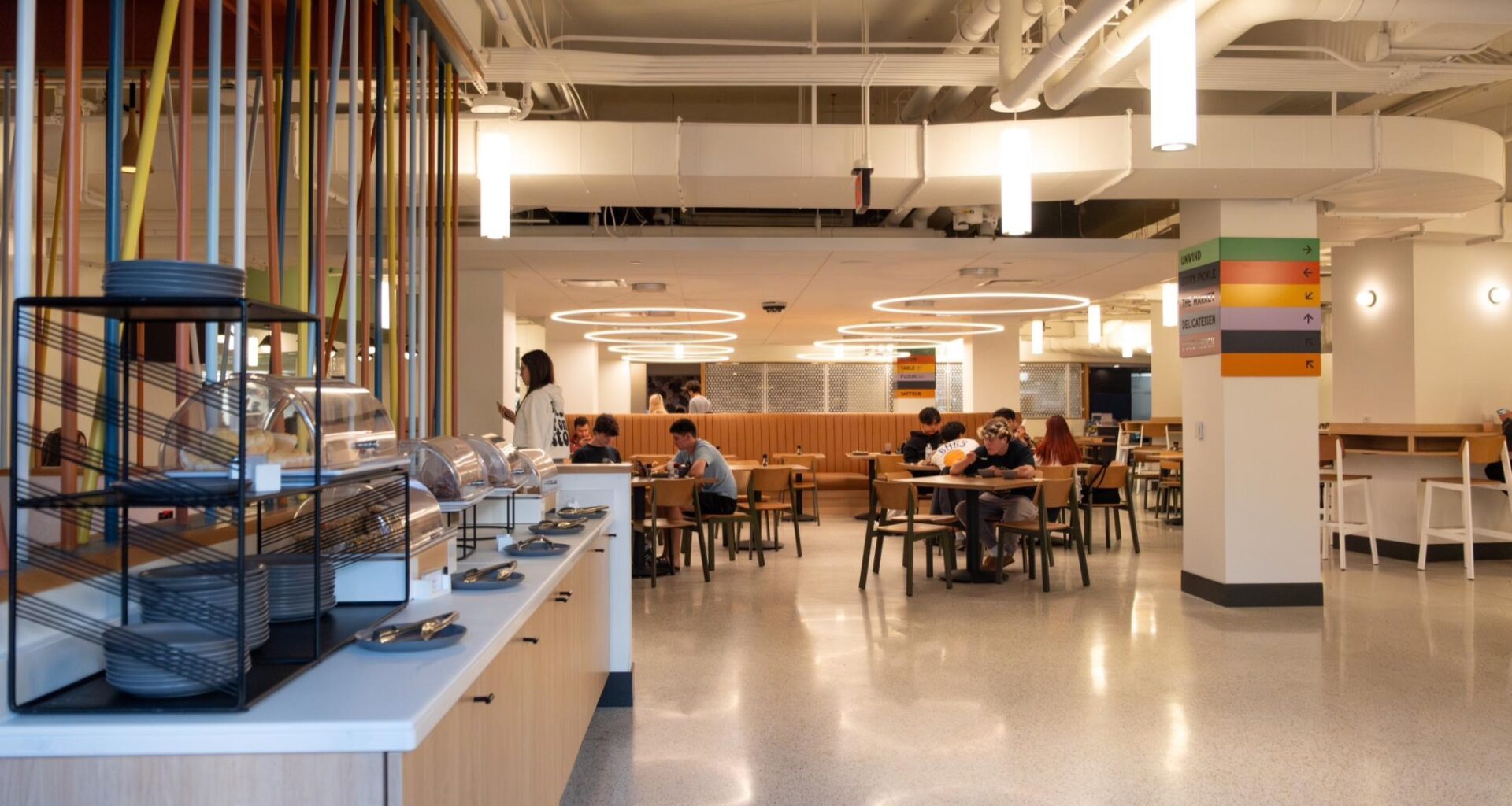Pitt Eats employees settled on a union contract on Oct. 10 that increased pay but left some issues unresolved.
Pitt Eats workers agreed upon their second contract with Compass, Pitt’s food contractor since 2020. A tentative agreement was reached in September that did not resolve understaffing, a significant issue for many staff members at the Eatery. The new contract increases pay, protects health care benefits and clarified overtime language for around 270 members.
The members are represented by SEIU Local 32 BJ, which started bargaining when the previous union contract expired in February. The contract was voted in “overwhelmingly,” according to Pete Schmidt, Western Pennsylvania Director for SEIU Local 32 BJ.
After bargaining, the new contract includes increased starting wages for new workers. Previously, new employees were paid 75% of the top hourly rate, but with the new contract, they will be paid 85% of that rate for their starting wages.
“We were able to win, I would say, the most substantial wage increases — at least in my lifetime, if not in a long time,” Schmidt said. “On top of that, we were able to clean up some existing language that should clarify some of the daily operational issues.”
The new contract clarifies overtime scheduling, ensuring that union members are offered overtime positions over non-union or managerial staff, according to Schmidt.
Though University spokesperson Jared Stonesifer could not discuss details of the contract, he said the University was dedicated to a fair bargaining period.
“We remain committed to a fair and transparent process that supports our associates and ensures continuity of service to the campus community,” Stonesifer said.
Todd Griffin, a station lead at Kokumi who has worked in the Eatery for almost a year, said the major issues he wanted resolved with the contract were management issues and the Eatery’s understaffing problem.
Despite the new contract, Griffin said the understaffing in the Eatery is “really, really bad,” and described feeling pressure from “the top on down to us.” Understaffing has caused Griffin to sometimes work 12 and 16-hour shifts, he said.
“I can say no [to working more] if I want to, but I just do [the work] because I know how they’re under pressure — the managers, the assistants,” Griffin said.
In addition to understaffing, there’s been a noticeable increase in students at the dining hall, according to Griffin and Omar Haris, a station lead at Cucina and Eatery employee of four years.
“The more kids they brought in just made it busier,” Haris said. “We didn’t get new hires or nothing, we’re just the same employees working harder.”
Stonesifer said staffing is regularly evaluated based on student and operational needs, and that Pitt Eats “actively recruits” for positions when they become available. Additionally, Stonesifer stated that new team members are being onboarded.
“Like many large food service operations, staffing levels may fluctuate throughout the year, but our teams work diligently to maintain consistent service and quality for our guests,” Stonesifer said.
Schmidt acknowledged understaffing as “a very real and very big deal.” In hopes of working to resolve understaffing with the current contract, Schmidt negotiated the pay increase of 10% for incoming workers.
The contract did not address sewage flooding, an issue for Griffin. According to Griffin, the Kokumi and Saffron stations have flooded six times. He said that sewage has come up from the metal grates on the floor of the two stations, something he said was “horrible,” and has only been fixed by temporary, “Band-Aid” solutions.
Griffin said that when the sewage floods occur, the area is deep cleaned using protocol. He reassured that the area is safe, despite the recurring problem.
“We make sure it’s deep cleaned for you guys to be comfortable to eat,” Griffin said.
Stonesifer said the University has “no documented cases of sewage back up.” If there is a flood or leak in the Eatery, Stonesifer said an emergency alert is sent to facilities management.
Schmidt was unaware of the sewage problem during the contract negotiation, which lasted several months due to scheduling issues on the part of Compass and Schmidt.
Griffin is unsure if he would’ve voted in favor of this same contract if it was presented earlier, but because bargaining took so long, he just wanted to “get it done.”
“It was just taking too long. Like, just figure it out,” Griffin said.
Haris said this contract’s long negotiation period was different from his first bargaining period in 2022. He felt fatigued from the months-long wait, despite his positive feelings towards increased wages and health care opportunities.
“As [long as] I feel like they give us the money that we deserve, our back pay and our good health care, I was cool with it,” Haris said.

